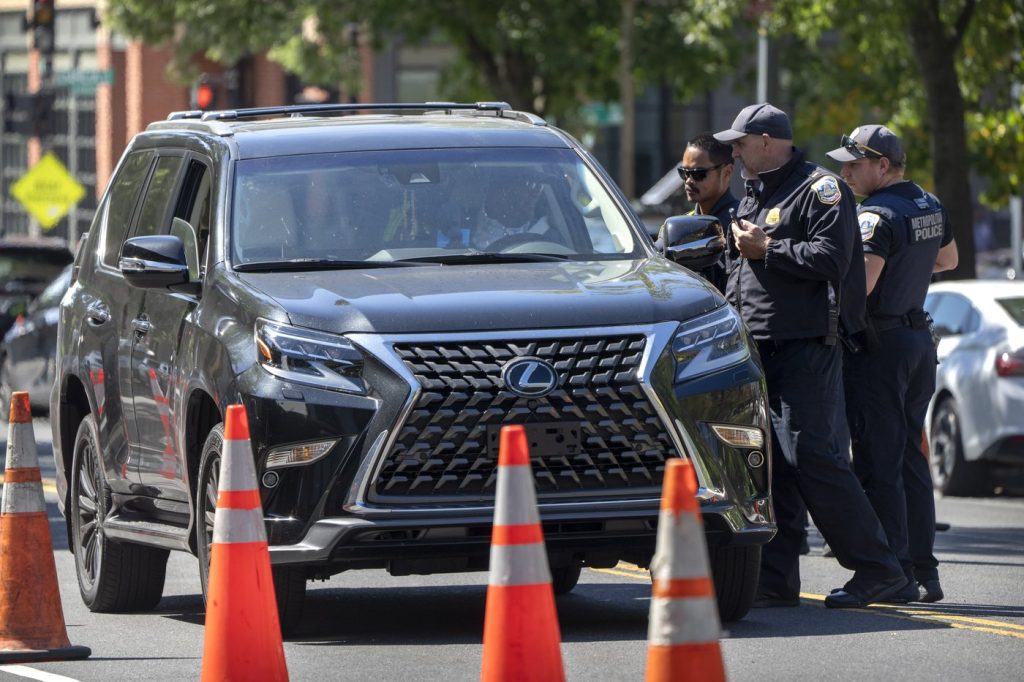The streets of Washington and Los Angeles have recently witnessed a surge in federal law enforcement activity. This follows President Donald Trump declaring a crime emergency in the District of Columbia, leading to heightened deportations across the nation. Reports have emerged of federal agents, some wearing masks, forcefully detaining individuals in public spaces while ignoring questions from bystanders.
In an executive order signed in August 2025, Trump cited the District of Columbia government's inability to maintain public order as detrimental to the Federal Government's operations, justifying the involvement of federal agents in law enforcement. He indicated potential expansion of these operations to other cities, alarming urban leaders and civil rights advocates who express concerns about the appropriateness and effectiveness of federal agents in policing.
One key distinction between federal agents and local police is their historical operational focus. Federal agents typically do not engage in daily policing; their work revolves around significant investigations, often related to interstate crime and national security. Chuck Wexler, executive director of the Police Executive Research Forum, noted that federal agents lack the regular community contact that local police officers have.
Moreover, federal agencies have historically been reticent to adopt practices aimed at enhancing accountability and transparency. Following significant protests highlighting police violence and accountability, many local police departments have implemented body camera policies. In 2022, President Joe Biden initiated an executive order mandating federal law enforcement agencies to establish body camera policies. However, Trump later rescinded this directive, leading to the discontinuation of body camera usage by agencies such as the Drug Enforcement Administration and the U.S. Border Patrol.
The impact of federal operations on community trust poses another area of concern. Local police have long sought to establish a positive relationship with the communities they serve, but the presence of masked federal agents creates apprehension among residents. Washington's Mayor, Muriel Bowser, has publicly questioned the necessity of masks for federal officers, expressing that such actions undermine accountability and contribute to distrust.
In particular, civil rights advocates argue that mask-wearing by federal agents, initially discouraged unless undercover, complicates accountability and public trust. Troy Edgar, deputy DHS secretary, justified mask-wearing as a protective measure for federal agents against harassment and doxing. However, critics mention that the lack of visibility makes it challenging for the public to identify and report misconduct by officers.
Another stark difference is seen in the transparency of arrest records. While most local police arrest reports are accessible to the public, obtaining similar information regarding federal arrests is significantly more challenging. Individuals seeking details often have to navigate the cumbersome Freedom of Information Act process, leading to frustrations when faced with long waiting times for responses.
Communities remain wary that the federal crackdown will dismantle the progress made in fortifying trust between local police and residents. Police commander Jaron Hickman expressed concerns about the long-term ramifications of federal operations, questioning the cost of such crackdowns in the broader context of community relations. Similarly, locals have reported feeling betrayed by their police force, viewing the arrival of federal agents as a shift in the dynamic of their community law enforcement.
As federal agents continue to operate alongside local law enforcement, the complexities of trust, accountability, and transparency in policing remain at the forefront of discussions among civic leaders and community members alike.











